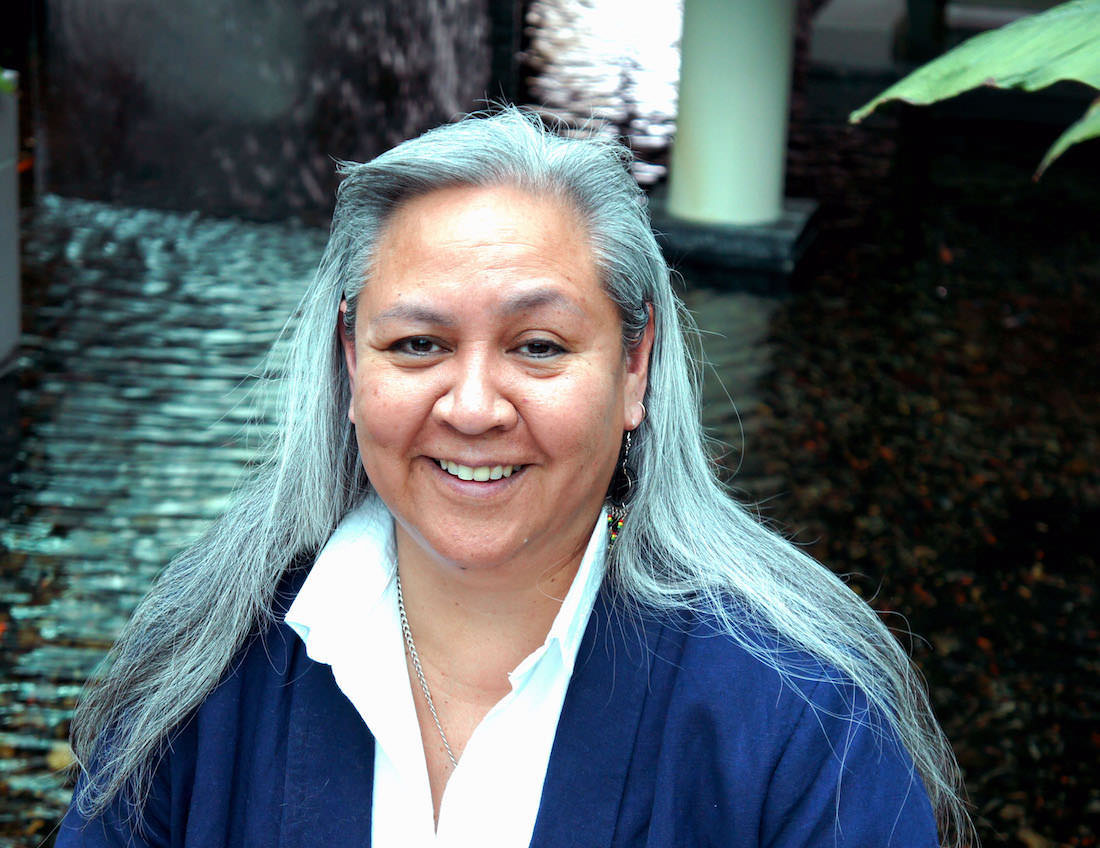The Canadian government Residential Schools policy instituted in the 1870s permanently separated indigenous children from their families and immersed them in white culture. Religious schools were set up to convert them to Euro-Canadians, taking their heritage, language, sense of belonging, and connection to blood families. The programme ended in 1996 and affected 150,000 Indian, Inuit, and Métis children, and left a complex and painful legacy. The government has apologised while thousands of victims seek restitution, recognition and healing. The Sixties Scoop (1950s – 1980s) also forcibly removed indigenous children from their families but to be adopted into white middle-class families. Raven Sinclair, (Ótiskewápíwskew) is a Cree/Assiniboine/Saulteaux and a member of Gordon First Nation of the Treaty #4 area of southern Saskatchewan. She is a professor in the Faculty of Social Work at the University of Saskatchewan, a filmmaker and a Scoop survivor. Sinclair acted as a consultant and producer on Roz Owen’s powerful Trouble in the Garden starring Cara Gee as Raven, an eco-activist Scoop survivor whose unexpected reunion with her white adoptive family sends her into crisis.
[youtube url=”https://www.youtube.com/watch?v=lyW9qSJqmL8″ width=”500″ height=”300″]
Raven Sinclair, what are some of the psychological effects on children and families of the Sixties Scoop?
The first thing we need to realise there’s a real continuum of experiences from horrific situations, kids who were forced to be farm hands or slaves, with terrible abuse of all sorts to the opposite, where kids were in beautiful families who nurtured and supported their identity and every story between. For many of us, a bad foster experience was problematic with psychological and emotional oppression and but what I know is the issue around identity was important as well as attachment. It’s true, regardless of whether or not we were neglected, so many of us are visibly indigenous so from that we really didn’t fit in. The scene in the film where the adoptive white parents come home and you can see how much of an outsider she was. My friends saw it and said they did a good job of showing what it was like, those things that made them feel like outsiders and not like they belonged.

Raven Sinclair
And what about the longing for the real parents?
For so many families that’s a lifelong tragedy. I know someone who was so close to finding their real mother only to find she’d passed just a month before. The longing for a connection in my case, I really had to forget my family, to do something with my brain where I didn’t believe they existed because it was too painful to consider. When I recognised the reality to connect with them and it came to fruition, I was overwhelmed. I met them in my twenties and when I was 27, I moved out to Saskatoon to be them. Its been a thirty-year process but finally, the last sibling group rebounded and reattached, and now we have this long attachment and support. It was a perfect gift, to have my siblings, still alive. We worked through all the anger and rage and resentment together.
Did you help Cara understand her character?
She did a lot of research on the coop and we connected, and she asked really astute questions about the character and the reactions. I was astonished, by how much work she’d done, how difficult acting is.
Its powerful, realistic stuff and not sentimental or exploitative.
No, I appreciated that. It’s not a happy ending but it’s a real ending, a true ending and there was hope. Cara did an amazing job of showing resilience in those scenes.
Did the Scoop end in the 80s?
Its still going on, but it’s changed now, it’s more about the foster care system. Kids are still being removed against our will using the legal system. In Manitoba, a child is scooped every day. The social workers come with the police and they just take them.
The film also looks at the ongoing theft of treat lands, and in the story, for real estate development.
The federal government, the Queen, the monarchy and throughout British history, the approach was to go into the territories and plant the flag and claim it for the King. It was a “discovery” or “empty lands”. So, they just go forth and taking it, underpinning the Crown’s ownership in Canada. The treaties established limits to that but upon most nations, we had big hunting territories. We agreed to move to small reserves and fish and trap and the agreement was that there would be compensation, over time.
These lands are literally being killed by development, the loss of earth and trees and the flora and fauna.
There’s a great depiction, articulating what it means. Raven’s white adoptive brother just doesn’t understand our relationship to the land, he only understands the Euro Canadian way. He is an interloper. It’s a beautiful moment. And this is why wild animals come into the cities, they have no habitat. Look at the way they were fighting to protect their ancestral land from development as a golf course.
There are so many great indigenous films coming out these days. Tantoo Cardinal was in four at TIFF.
It’s great. Tantoo was also inducted into the Academy of Motion Picture Arts and Sciences.
What do you hope people will take away from Trouble in the Garden?
I want people to see it and understand that everybody has a story and this story isn’t just the story of a survivor. There are themes that we need to understand to know a bit more about what our population has gone through.
by @annebrodie
BFCA BTJA AWFJ TFCA FIPRESCI